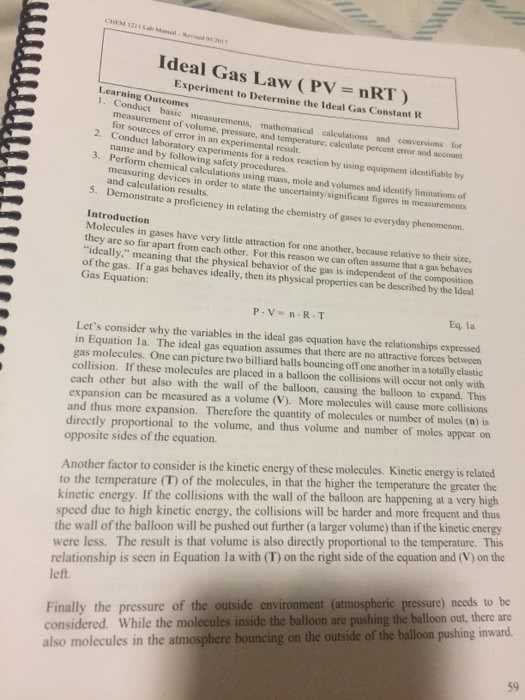CHEM 121 Lecture Notes - Lecture 3: Gas Laws, Root Mean Square
Document Summary
3:44 pm (cid:1) (cid:1) (cid:1) (cid:1) (cid:1) (cid:1) (cid:1) (cid:1) (cid:1) (cid:1) (cid:1) (cid:1) (cid:1) (cid:1) (cid:1) Kinetic energy of gas particle is proportional with temperature. Collisions of gas particles against container = pressure. Ideal gas law assumes that gas particles have no intermolecular attraction and no volume. Elastic collision: particle bounces off with the same amount of energy. Physics: force = mass x acceleration (f = ma) Applied to gases: force = change in momentum/change in time (mv/t) Units: change in momentum per unit time (2mv2/t) Keavg = na(1/2mv2) (cid:1) average kinetic energy for one mole of particle. Pv/n = 2/3keavg (cid:1) in relation to gas laws. Keavg = 3/2rt (cid:1) kinetic energy relation to temperature (kelvin) Temperature is the physical measure of kinetic energy. Collisions against the wall cause exchange of energy to equilibrate ke in two separate gas containers. To find ratio of root mean square velocities: O2 at stp, 1023 collisions/s per cm2 of wall.






